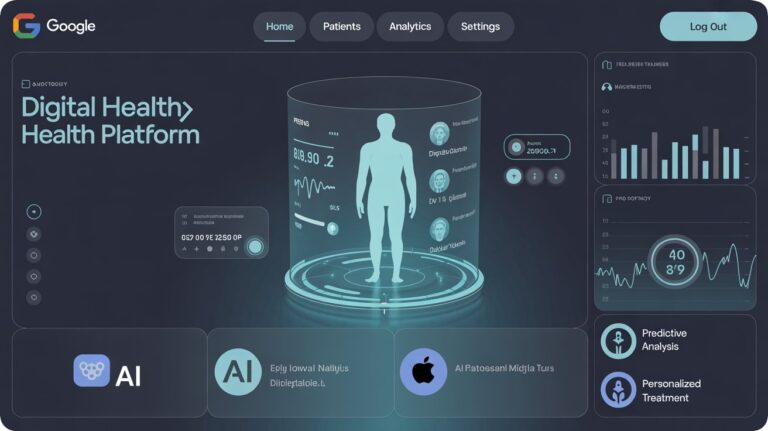
TL;DR
- Berlin-based Synthflow AI is gaining momentum in the voice-based conversational AI market with over 45 million calls handled and 1,000+ customers.
- The no-code platform enables enterprises to deploy white-labeled AI voice agents, integrating with over 200 tools like Salesforce and Twilio.
- Synthflow just secured a $20 million Series A led by Accel to expand R&D, scale operations, and open a U.S. office.
- With 15x annual growth and 90% enterprise retention, Synthflow positions itself as a compliance-ready alternative in a crowded AI voice space.
Synthflow’s Bold Entry Into the AI Voice Market
The conversational AI boom continues to gain traction post-ChatGPT, with global projections placing the market at $50 billion by 2031, according to MarketsAndMarkets. While dozens of startups are chasing this opportunity, Synthflow AI is gaining attention for cutting through the noise with an enterprise-grade, voice-focused solution.
Founded in Berlin in 2023, Synthflow AI provides a no-code platform that lets businesses deploy customized AI voice agents. These agents are built for real-time responsiveness, feature HIPAA and GDPR compliance, and integrate seamlessly into over 200 enterprise platforms.
“We realized how complex real-time AI speech was — and we fell in love with solving that,” said CEO and co-founder Hakob Astabatsyan in a TechCrunch interview.
From Experimentation to Product-Market Fit
The idea for Synthflow originated in early 2023, when Hakob and co-founders Albert Astabatsyan (CPO) and Sassun Mirzakhan-Saky (CTO) were experimenting with OpenAI’s ChatGPT API to build no-code AI tools. Initial iterations focused on text-to-text bots, but the team quickly pivoted to voice AI upon recognizing the engineering complexity—and unmet need—in the space.
After months of development, the first Synthflow version launched in early 2024, with an enterprise-grade product following by year’s end. That version brought in thousands of businesses, solidifying Synthflow’s position among enterprise clients.
Synthflow AI Key Metrics
| Metric | Value | Source |
| Year Founded | 2023 | TechCrunch |
| Total Calls Handled | 45+ million | TechCrunch |
| Monthly Call Volume | 5+ million | TechCrunch |
| Enterprise Retention Rate | 90%+ | TechCrunch |
| Number of Customers | 1,000+ | TechCrunch |
| Funding Raised (Series A) | $20 million | Accel |
| Key Integrations | Salesforce, Twilio, HubSpot (200+ total) | Synthflow |
| Compliance Standards | HIPAA, GDPR | Synthflow |
Enterprise-Grade Infrastructure as a Differentiator
Synthflow distinguishes itself with a focus on robust compliance and deep CRM integrations — factors crucial for businesses operating in regulated industries.
“We didn’t want to be just another AI chatbot company. We wanted to solve the hard problems of latency, interruptions, and cross-platform deployment,” said Astabatsyan.
Its platform supports real-time 400ms latency conversations, enabling natural interactions that mimic human agents. Enterprise clients can white-label these voice agents and deploy them across industries such as healthcare, insurance, and fintech—each with strict regulatory needs.
Why Investors Are Listening
Synthflow’s growing traction caught the eye of Accel, which led the recent $20 million Series A. Existing backers Atlantic Labs and Singular also participated.
Accel partner Luca Bocchio emphasized Synthflow’s maturity despite its short timeline. “They went deep on integration early and built out real enterprise-grade features from day one,” Bocchio told TechCrunch. He noted that Synthflow stood apart from competitors with its high retention and rapid scale-up.
The new funding will support:
- Team expansion in engineering and enterprise sales
- A new U.S. headquarters to grow North American presence
- Ongoing R&D investment in natural language and speech models
A Crowded and Competitive Arena
Synthflow enters a category already buzzing with heavily funded rivals. Sierra, co-founded by Bret Taylor, has raised $285 million, while Bland AI secured over $50 million to tackle similar problems.
But the Synthflow team believes the market is still underserved at the enterprise tier. While many startups build for customer support use cases, few offer the level of compliance, latency, and deployment flexibility that Synthflow delivers.
“This is a post-product-market-fit era for us,” Astabatsyan said. “We know who our customers are and exactly where we’re headed in the next three to five years.”
The Future: Real-Time Voice as Infrastructure
Synthflow’s growth story signals a larger industry trend: voice-first AI platforms are evolving from novelty tools into infrastructure-level systems.
Voice interfaces, when built with precision, may offer superior support experiences across sectors—from healthcare triage bots to 24/7 insurance claims agents and automated sales assistants.
As AI voice agents become standard in enterprise workflows, Synthflow’s early investments in speed, scalability, and compliance could give it the edge needed to scale alongside market demand.




